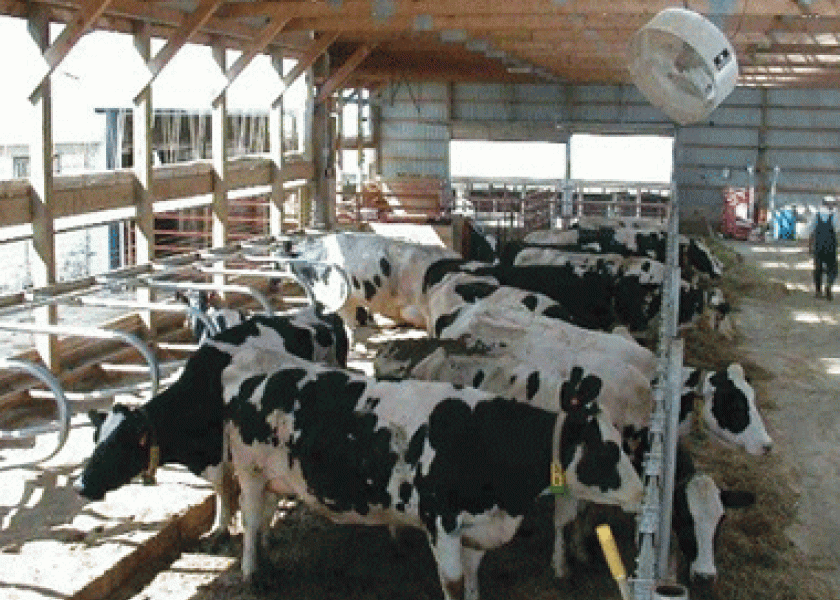Three-Fourths of California Dairies Complete Animal Care Assessments

Source: Dairy Cares
Tipton, California dairy farmer Art Van Beek was one of the first in California to voluntarily have his farm evaluated according to the guidelines of the National Dairy FARM Program: Farmers Assuring Responsible Management.
“The process is thorough, it’s something we can learn from and it’s the right thing to do,” Van Beek said. “We want to show – instead of telling – people that we’re raising and caring for animals according to a set of ethical and scientific standards.”
The FARM Program includes a comprehensive set of animal care guidelines developed by veterinarians, animal scientists and dairy farmers. Individual farms in the program are visited by a trained evaluator to measure compliance with the program’s guidelines. These initial on-farm evaluations are followed by a second verification process in which a representative statistical sampling of all farms is reassessed by an outside, independent verifier.
With the adoption of FARM in 2010, the California dairy community took a huge leap forward to begin the process of assuring customers and consumers that animals on today’s farms are treated ethically and responsibly. “It’s nothing short of impressive,” said Dr. Terry Lehenbauer a veterinarian and Director of the UC Davis Veterinary Medicine Teaching & Research Center in Tulare. “A comprehensive plan for providing education and conducting on-farm evaluations was put forth, and in just a few short years tremendous progress has been made.”
Since its adoption, Dairy Cares coalition members have conducted more than 1,000 evaluations on dairy farms throughout California, about 73 percent of the state’s total dairy farms. “At the outset, the goal was to evaluate one-third of the dairy farms in the state in the first year,” said Dr. Michael Payne, Director of the California Dairy Quality Assurance Program.
“The dairy community not only met that goal, they exceeded it. It’s a testament to the value they place on caring for their animals properly,” he says.
By the end of 2015, it’s estimated that nearly 100 percent of the milk represented by milk handler members of Dairy Cares will have been evaluated according to FARM Program guidelines.
“We’re committed to getting better and doing what’s right and FARM helps us communicate to the public, in a verifiable, statistical manner, the care we provide our animals daily,” said Van Beek. “We want folks to know that responsible animal care is an important part of our heritage as well as our future.”
You can read more on the Dairy Cares program here.







